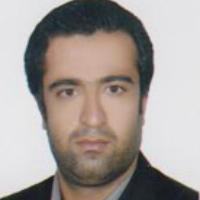Salafism in Tunisia; Context of rising, main Streams and review of intellectual and political opinions
Author(s):
Article Type:
Research/Original Article (دارای رتبه معتبر)
Abstract:
Purpose
Salafism in the Islamic and Arab world has been one of the most important political topics since the 1990s, especially in the field of political thought and politics and governance in the Middle East and North Africa. The multiplicity and emergence of dozens of Salafi currents in the recent period have led to frequent revision of Salafi currents, especially in countries leading the Arab revolutions such as Tunisia. This article seeks to examine the contexts of the rise of Salafist movements in Tunisia between 2011 and 2022, and while analyzing the most important Salafist movements - except for the democratic reading of Ennahda - opinions. intellectual, political and the areas of their differences and divisions in the center of attention.Method
This research has examined its data with the descriptive-analytical research method and collected the sources using library and internet materials.Finding
The findings of the research show that, first, four common areas in the emergence and rise of Salafi currents can be mentioned: exclusion from the public and political sphere and lack of rationalization, the issue of religious weakness and security issues, social and economic problems. Second, the Salafist tradition has continued in two passive and politically active currents: the quietist tradition (silent, academic or passive), and the politically active Jihadi tradition in such movements as Hizb al-Rahmah (closest to Ennahda), Sarrat al-Tayid (closest to Ansar al-Sharia) and Ansar al-Sharia.Conclusion
The silence trend mainly after the events of 2015, in its traditional way; It means tending to non-political Islam and promoting religious, ideological and moral issues. But the more influential movement of Ansar al-Sharia, after being removed from the public sphere of power after numerous terrorist incidents and the inability to present an acceptable political and intellectual model, will seek to regain its presence and share in power, which due to the lack of coherence The meaning of this current at the level of thought and the lack of ability in political rationalization, it seems unlikely that this goal will be realized - at least in the current decades.Keywords:
Language:
Persian
Published:
A Quarerly Journal of Political Studies of Islamic World, Volume:13 Issue: 49, 2024
Pages:
107 to 138
https://magiran.com/p2751061
مقالات دیگری از این نویسنده (گان)
-
Challenges of the COVID-19 Pandemic against Some elements of Modern Political Philosophy
, Javad Salehi, Hosain Mohseni *
Journal of Political and International Approaches, -
The Ennahda movement of Tunisia: Democratic transformation or turning away from Islamism
, Seyed Javad Salehi, Fariborz Arghavani Pirsalami *, Mozaffar Hasanvand
Middle East Studies Quarterly, -
Terrorism and U.S. Foreign Policy in the Middle East
Fariborz Arghavani Pirsalami *,
Middle East Studies Quarterly,



